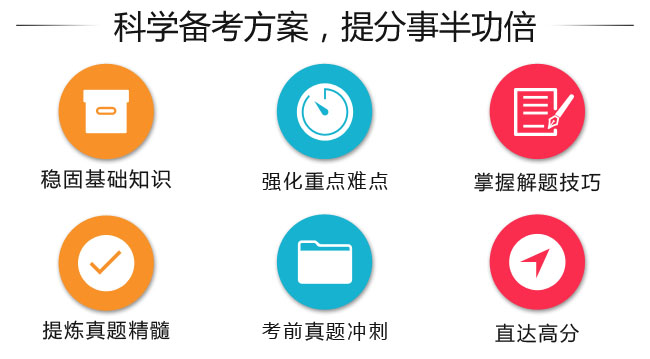2018年3月10日SAT考试作文原文+解析
今天上海新航道小编给大家带来的是2018年三月分SAT考试作文原题+解析,还没有的小伙伴快来做题吧!

Adapted fromMohamed Ibrahim, "LootingEgypt’s heritage" ©2013 by the The washingtonpost.com. Originally published October 18, 2013.
Mohamed Ibrahim is Egypt’s minister of state for antiquities and a professor of Egyptology at Ain Shams University in Cairo.
Egypt’s future lies in its history, particularly its archaeological history. For hundreds of years the mystery and wonders of the pyramids, the sphinx and the Valley of the Kings have attracted visitors from around the world. Tourism is the lifeblood of Egypt’s economy and touches the lives of most Egyptians, whether they work as tour guides, restaurant owners, craftsmen or bus operators. Egypt’s history holds the prosperity of the country’s future generations, including that of youths — more than 40 million Egyptians are age 30 or younger — who are seeking opportunities.
But thieves are raiding our archaeological sites and selling their findings to the highest bidders. They are taking advantage of Egypt’s security situation to loot our nation’s economic future and steal from our children.
Egyptians need the people and the government of the United States to support our efforts to combat the systematic and organized looting of our museums and archaeological sites. Imagine a world in which the stories of King Tut, Cleopatra, Ramesses and others were absent from the collective consciousness. And with much of our history still waiting to be discovered under the sand, the potential losses are staggering. Antiquities theft is one of the world’s top crimes — after the trafficking of weapons, narcotics and people — but it is seldom addressed.
Egyptian antiquities are flooding international markets. Recent auctions at Christie’s in London and New York included several items from Egypt. Fortunately, when contacted, Christie’s in London withdrew a number of items that had been stolen from the tomb of King Amenhotep III, discovered in 2000 in Luxor. Among the items was a steatite bust of an official dating from 1793 to 1976 B.C.
Although arrests were made in this case, and two auction houses in Jerusalem canceled the sale of 126 antiquities after being contacted by Egyptian officials, the tide unfortunately flows in the other direction. After being contacted by the Egyptian foreign ministry, other auction houses have been unwilling to cooperate with requests to delay or cancel sales of items that experts assess have been stolen. Among those who make their money selling antiquities, cooperation with the Egyptian government has been mixed at best.
Looting is a centuries-old business and a crime that Egyptians will no doubt be fighting for years, especially during difficult economic times. Our country is willing to take a strong stand. No one can forget the stark images of Egyptians — men and women, Muslims and Christians, young and old — creating a human shield to protect the Egyptian Museum in Cairo during the 2011 revolution. Still, thieves succeeded in stealing several items from its collection. Despite our government’s best efforts to retrieve those artifacts, more than 50 items, including some from the famous King Tut tomb, remain missing.
In the Aug. 14 attack on the Malawi National Museum, in Minya, more than 1,000 items were taken: statues more than 3,500 years old; jewelry from the time of the ancient Pharaohs; Greco-Roman gold coins. When security forces tried to stop them, the thieves burned some items they could not take, including mummies.
Every day, Egyptians risk their lives to prevent organized gangs from stealing our heritage. Our country is not the only place under attack: Iraq, Syria, Libya, Peru and Guatemala are suffering similar assaults on their heritage. Halting these crimes on our civilization will require a coordinated global effort — from both the “producers” and the “consumers.”
It is our common duty, in Egypt and around the world, to defend our shared heritage. International institutions, governments, business, archaeologists and other experts must come together to explore how to help countries in need protect their treasures. The efforts of groups such as the International Coalition to Protect Egyptian Antiquities are appreciated — but much more aid is necessary. The youths of Egypt deserve more. There is no time to waste.

考题点评
整体难度
一般。维持了亚太写作试题阅读材料一贯的程度,学生理解起来并不难。
文章解析
阅读材料内容与2016年5月亚太试题The Lovely Stones极为相似,呼吁世界各界人士参与保护埃及文物遗产。此类考题并称为“资源保护类”,文章套路一般为“宣扬价值-惨遭破坏-呼吁保护”。
本篇文章的前两段都是在“宣扬价值”,即表明埃及的历史文物为本国和世界人民带来的繁荣和启迪;第三段谈“惨遭破坏”,介绍现状并引发读者同情、惋惜、愤慨等情绪;后面几段基本围绕“破坏”与呼吁大家共同“保护”展开论述。
写作方向
论据方面,这类放眼望去没有数字和权威的文章学生也许会觉得比较难。但此类文章在课上也强调过可以寻找fact和example。比如第2段介绍文物价值的fact和第6段援引几家不同拍卖所对待拍卖埃及文物态度的examples等。
论证方面,既可以按照此类文章套路分析structure,也可以分析第6段examples中拍卖文物态度的对比等。
情感方面,是这篇文章找的一类手法。从选词角度,谈价值时大量的正向词汇,比如mystery,wonders,prosperity等;谈破坏时的负向词汇如losses,crimes,unfortunately等;在表达埃及人民捍卫文物决心时的strong stand都可以作为分析情感方向的选择。此外,整篇文章每一个段落都在触发读者对于惨遭不幸的文物同情(sympathy)和惋惜(pity),对于偷盗并私自贩卖、对文物造成迫害行为的愤怒(anger)和批判(blame),对埃及为保卫历史文化遗产的决心和作为产生敬佩(admired)和激励(motivated),从而认识到重要性,加入到他们的队伍中去。












